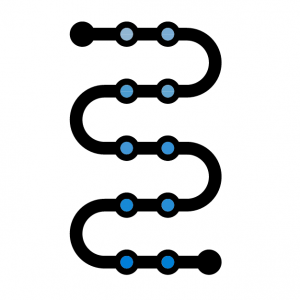CFP Posted for the “Event Event” at IEEE VIS 2016
 I’m co-chairing a workshop at IEEE VIS this year which focuses on the visual analysis of temporal or sequential events. This has been a topic that I’ve focused on for a while now, and the organizing includes others from both industry and academia who are interested in the topic. I’ve copied the introduction to the CFP below, and I encourage you to visit the workshop’s website to learn more . The website has details about the workshop scope, types of submissions, deadlines, and more.
I’m co-chairing a workshop at IEEE VIS this year which focuses on the visual analysis of temporal or sequential events. This has been a topic that I’ve focused on for a while now, and the organizing includes others from both industry and academia who are interested in the topic. I’ve copied the introduction to the CFP below, and I encourage you to visit the workshop’s website to learn more . The website has details about the workshop scope, types of submissions, deadlines, and more.
Call For Papers
As visualization researchers, our ongoing challenge is often to leverage the voluminous data that is being captured to drive decision making and insights. Common to such data are temporal events, data points with both a timestamp and event type, so understanding patterns of temporal event sequences is an important problem to many domains.
For example, medical researchers may wish to leverage the data captured by electronic health records to determine if certain sequences of medical events correlate with positive outcomes. Similarly, city government officials may wish to leverage the temporal data collected from their transportation systems, call centers, and law enforcement agencies to improve their cities’ services. Engineers might analyze temporal events from system logs to manage large-scale distributed system performance. Consumer services analysts might seek to understand social media and shopping patterns.
Recently, there has been an increasing amount of visualization research focusing on temporal events. Papers on this topic have appeared at IEEE VIS, other visualization conferences, and at many domain-specific venues.
The main question behind the proposed workshop is: How can we unify and advance the role of visualization in temporal event analysis? The workshop will gather visualization researchers together to discuss the interesting opportunities and challenges visualization may face with temporal events. It aims to both gather the existing literature on the subject and build a research agenda for future research.
In order to encourage collaboration and comparison, we will distribute 1-2 sample datasets before the workshop. We will encourage, but not require, presenters of papers and demos to show how their system performs on these sample datasets; this will better allow us all to discuss the tradeoffs of different designs.
Read more on the workshop website!
